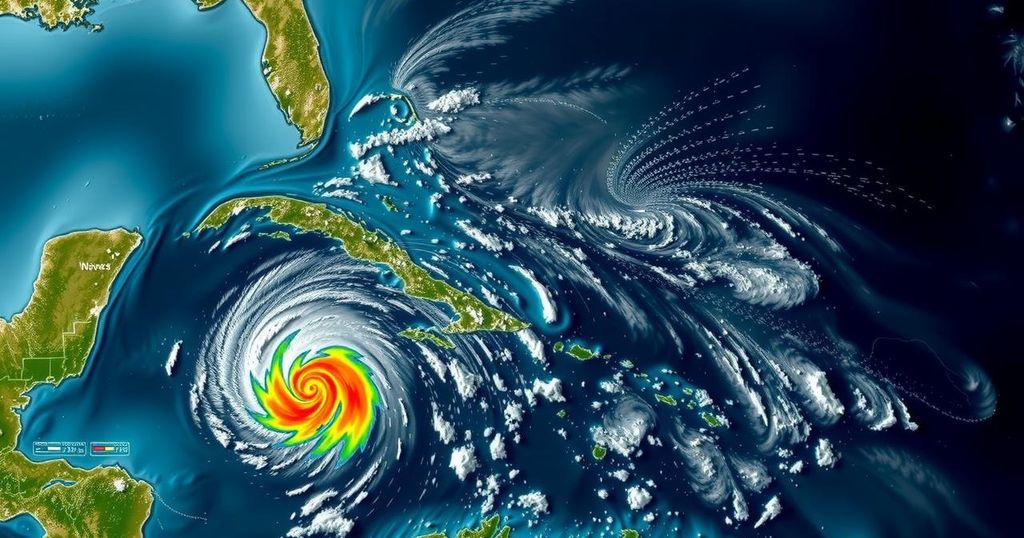2024 Atlantic Hurricane Season: Record Storm Activity and Climate Change Impacts

The 2024 Atlantic hurricane season ended with 11 hurricanes, greatly exceeding the average of seven. Significant storms included Hurricane Beryl, the first Category 4 in June, and Hurricane Helene, which was the deadliest since Katrina. Climate change is increasingly influencing hurricane behavior, driving heightened intensity and frequency of storms, as highlighted by meteorologist Brian McNoldy.
The 2024 Atlantic hurricane season concluded on Saturday, marking a year characterized by an above-average frequency of hurricanes. Eleven hurricanes occurred, significantly more than the typical seven, resulting in extensive devastation far from their landfall locations in the U.S. Gulf Coast. Meteorological experts referred to this year’s activity as a “crazy busy” season, primarily attributed to unusually high ocean temperatures. Most notably, eight hurricanes made landfall across various regions including the U.S., Bermuda, Cuba, the Dominican Republic, and Grenada.
Amongst the remarkable developments during the season, Hurricane Beryl emerged as the earliest recorded Category 4 hurricane, striking Carriacou in Grenada in June and later exacerbating damage in Jamaica. It intensified into the earliest Category 5 hurricane on July 1, an unprecedented occurrence for the Atlantic. Historically, major hurricanes are not expected before September 1. Hurricane Helene, which struck in September, resulted in catastrophic impacts, including over 200 fatalities and an estimated $48.8 billion in damages across multiple states, marking it as the deadliest storm in the U.S. since Hurricane Katrina in 2005.
October brought Hurricane Milton, noted for its rapid intensification with wind speeds reaching 180 mph, making it one of the strongest hurricanes documented in the Gulf of Mexico. This heightened activity led to rainfall levels tripling in certain regions compared to average expectations during September and October. Lastly, Hurricane Rafael in November, which peaked at 120 mph, was almost the strongest November hurricane on record, making landfall in Cuba amidst its recovery from previous storms.
The increase in hurricane intensity and frequency has been linked to climate change, particularly the warming of ocean waters due to greenhouse gas emissions. Expert Brian McNoldy stated, “I do not ever point to climate change as causing a specific weather event, but it certainly has its finger on the scale and makes these extreme storms more likely to occur.” This highlights the nuances involved in climate patterns and hurricane formations, emphasizing the importance of understanding how global warming influences storm behavior and impacts.
The Atlantic hurricane season spans from June 1 to November 30 and is characterized by varying levels of hurricane activity. Historically, the average number of hurricanes per season is around seven, but the 2024 season experienced a significant uptick, resulting in major storms impacting the Gulf Coast and surrounding areas. Anomalous weather patterns driven by climate change, such as rising ocean temperatures, are believed to play a crucial role in the formation and intensification of hurricanes, thus leading to increasingly devastating storms that challenge historical norms.
In conclusion, the 2024 Atlantic hurricane season was notable for its unprecedented hurricane activity, yielding 11 storms and resulting in tragic losses and extensive damages across various regions. The impacts of climate change are becoming more pronounced, suggesting that such intense hurricane seasons may become a more common reality. Understanding the implications of warming oceans on storm patterns is essential for communities vulnerable to future hurricanes.
Original Source: wsvn.com







